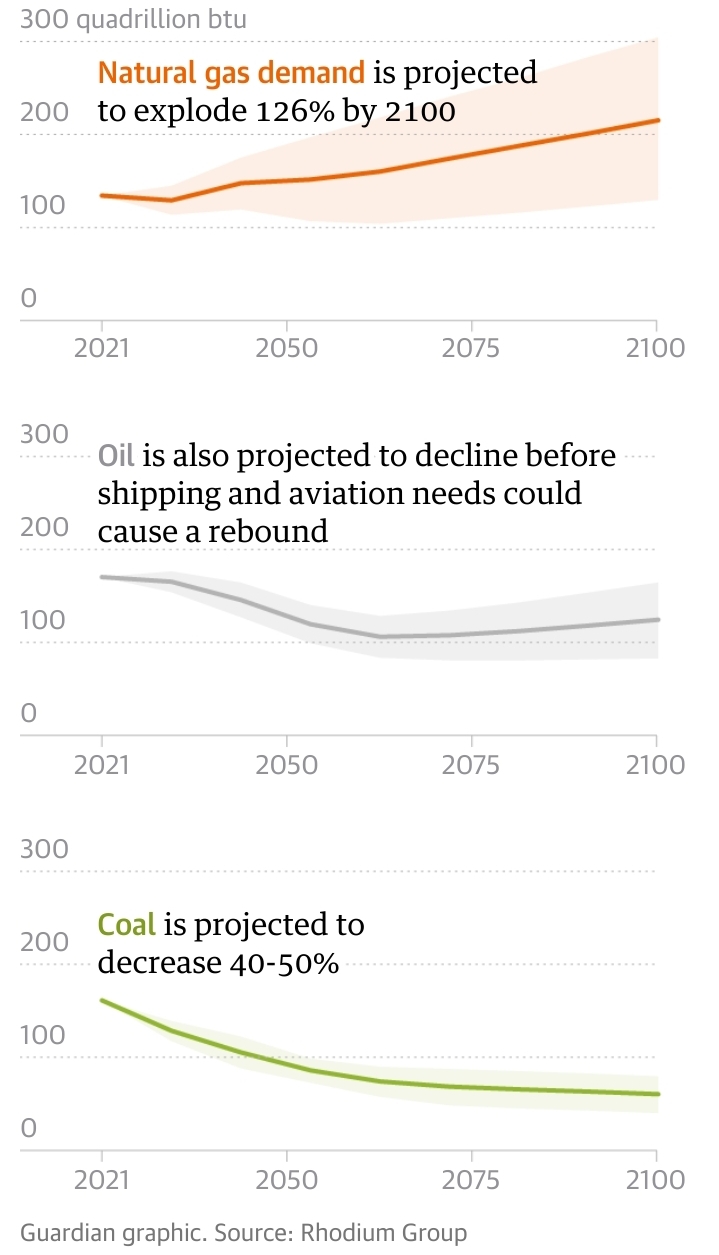silence7@slrpnk.netM to Climate - truthful information about climate, related activism and politics.@slrpnk.netEnglish · 1 year agoThe world is reducing its reliance on fossil fuels – except for in three key sectors: shipping, aviation and industry a long way from net zerowww.theguardian.comexternal-linkmessage-square14fedilinkarrow-up181arrow-down11
arrow-up180arrow-down1external-linkThe world is reducing its reliance on fossil fuels – except for in three key sectors: shipping, aviation and industry a long way from net zerowww.theguardian.comsilence7@slrpnk.netM to Climate - truthful information about climate, related activism and politics.@slrpnk.netEnglish · 1 year agomessage-square14fedilink
minus-squaresinkingshiplinkfedilinkarrow-up6·edit-21 year agoI like this graph from the article: Wasn’t it 2028 when the carbon budget for 1.5 °C runs out? And 2050 or so for 2 °C? Lol
minus-squaresilence7@slrpnk.netOPMlinkfedilinkarrow-up4·1 year agoThe dates on which budgets run out depend on the rate at which we continue to extract and burn fossil fuels. Future projections depend enormously on policy. Change policy, and those curves change.
minus-squaresinkingshiplinkfedilinkarrow-up2·1 year agoYou are correct with both points. I merely wanted to point out, how far we are from reaching the Paris Agreement. 1.5 may or not be a little later than 2028. The fossil consumption lines may or not be a little flatter.
I like this graph from the article:
Wasn’t it 2028 when the carbon budget for 1.5 °C runs out? And 2050 or so for 2 °C? Lol
The dates on which budgets run out depend on the rate at which we continue to extract and burn fossil fuels.
Future projections depend enormously on policy. Change policy, and those curves change.
You are correct with both points. I merely wanted to point out, how far we are from reaching the Paris Agreement.
1.5 may or not be a little later than 2028. The fossil consumption lines may or not be a little flatter.